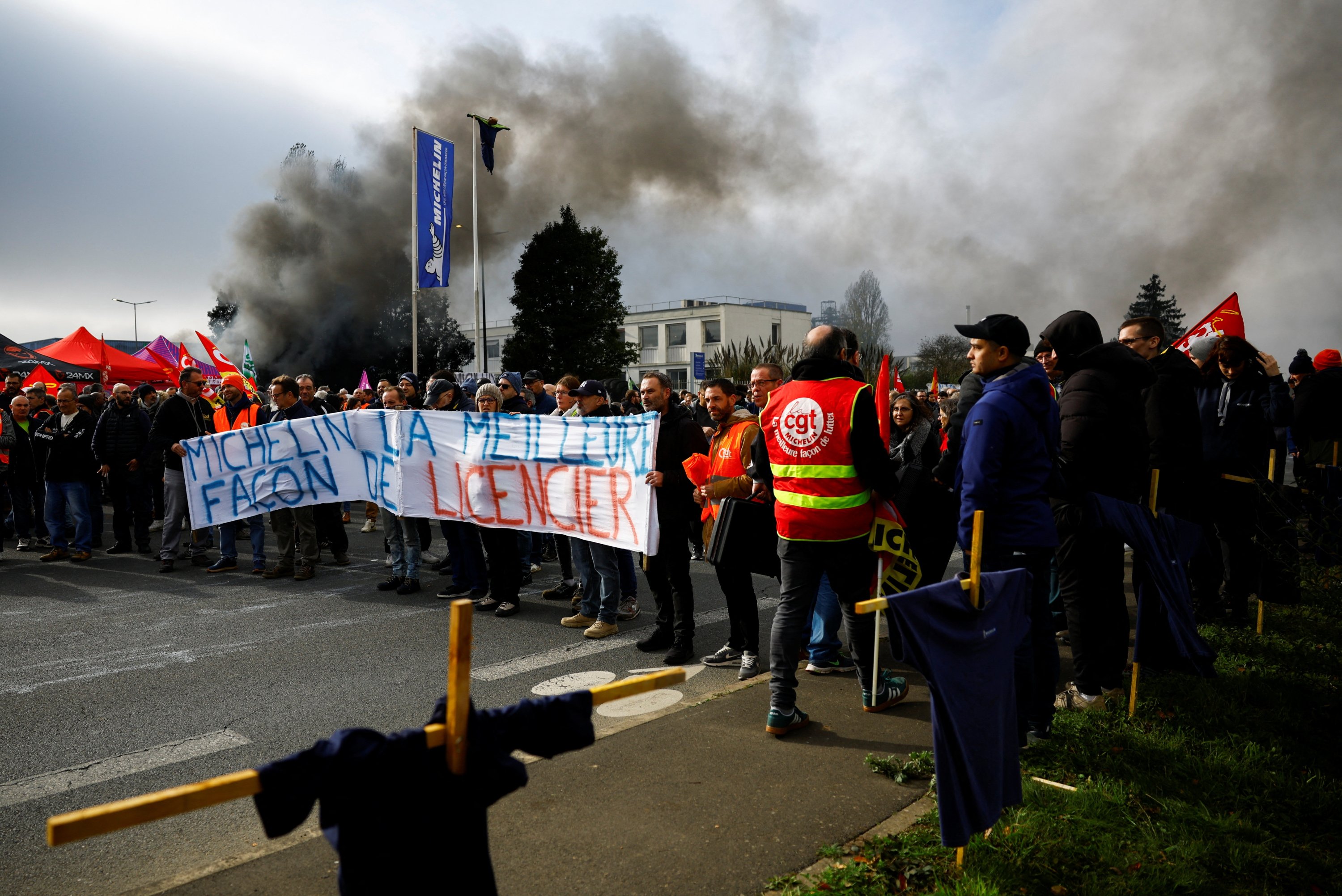Jobs
Europe’s struggling auto sector faces plant closures, job cuts

Several automotive companies across Europe, including industry majors and parts suppliers, have recently announced plans for plant closures and big layoffs as they continue to struggle with weak demand, high costs, competition from China and a slower-than-expected transition to electric vehicles.
From the crisis in Volkswagen to the reduction of working hours at Bosch, the German auto industry, the locomotive of Europe’s largest economy stands out in this regard.
Facing the uncertainty over its political future and new elections in February, Germany continues to struggle with economic growth with woes spreading over industries, including its steel sector, where giant Thyssenkrupp also announced thousands of job reductions last month.
The Organisation for Economic Co-operation and Development (OECD) on Wednesday also once again lowered its economic forecast for Germany, even as it predicted growth of 3.3% in the global economy next year.
The Paris-based organization said that German gross domestic product (GDP) would grow 0.7% in 2025 after remaining flat this year. Growth is forecast to rebound in 2026 at 1.2%.
Apart from mentioned layoffs, below are layoffs and site closures announced in recent months (latest first):
Feintool
Switzerland’s automotive supplier Feintool on Tuesday announced it will close one of its sites in Germany and lay off as many as 200 people.
Feintool plans a shake-up of production of rotors and stators for electric motors and said that its unprofitable site in Sachsenheim near Stuttgart would be closed, with most of its production moved to its Tokod facility in Hungary.
Valeo
French car parts supplier Valeo will cut around 1,000 jobs in Europe, sources told Reuters on Nov. 27, adding that the restructuring push will result in the closure of two French plants.
The job cuts will impact more than 800 workers in France, while Valeo will also cut staff at operations in Germany, Poland and the Czechia, added the sources.
Valeo’s job cuts come after the company reduced its annual sales guidance in October and as the European car sector faces challenges from sluggish orders at home and competition from Asian rivals which often make cheaper electric vehicles.
Stellantis
The wave of crises has not passed the automotive sector’s other giant, Stellantis, either.
Carmaker Stellantis on Nov. 26 announced plans to shut its Vauxhall van factory in Luton, England, putting more than 1,000 jobs at risk.
It has repeatedly halted assembly operations at its main plant in Italy’s Mirafiori due to low demand, in particular for the electric version of the Fiat 500.
The company said it had no plans to shut plants in Italy.
In addition to this and amid ongoing slumping sales, Stellantis CEO Carlos Tavares resigned abruptly on Sunday after nearly four years in the top spot of the automaker, which owns car brands like Jeep and Citroen.
Bosch
Bosch the world’s biggest auto parts supplier, plans to cut 5,500 jobs by 2032 in its cross-domain computer solutions and steering divisions, mostly at German sites, and reduce work hours for some employees, it said on Nov. 22.
Ford
At the same time, U.S. automaker Ford on Nov. 20 said it would cut 4,000 jobs, primarily in Germany and Britain, representing 14% of its European workforce.
Ford has been battling to bring down costs in its global business, also lagging competitors like GM significantly in the U.S. market where it has struggled to deal with quality and warranty problems, supplier issues and waste in the automaker’s 121-year legacy business.
Michelin
Early in November, French tire maker Michelin announced the decision to shut down two sites in western France, affecting about 1,250 jobs. The French company, founded 135 years ago cited high costs and cheap Asian competition for the closure of its Cholet and Vannes sites in western France.

Schaeffler
Also on the same day, on Nov. 5, another major automotive supplier, German Schaeffler said it planned to cut 4,700 jobs, mostly in Germany, after its operating profit almost halved in the third quarter, highlighting challenges in the European automotive industry.
Schaeffler said Germany would see the biggest staff reduction, with plans to lay off around 2,800 people at ten sites.
Volkswagen
Volkswagen, Europe’s top carmaker, has threatened thousands of job cuts and potential plant closures in Germany as it embarks on tough talks with unions over the cost-cutting push.
On July 9, it also put on sale its 3,000-people-strong Brussels site for premium brand Audi due to low demand for its higher-end electric cars.
Daimler Truck
Daimler Truck, the world’s largest truckmaker, said on Aug. 1 it would cut hours and impose a job freeze for employees in its truck-making business in Germany.











